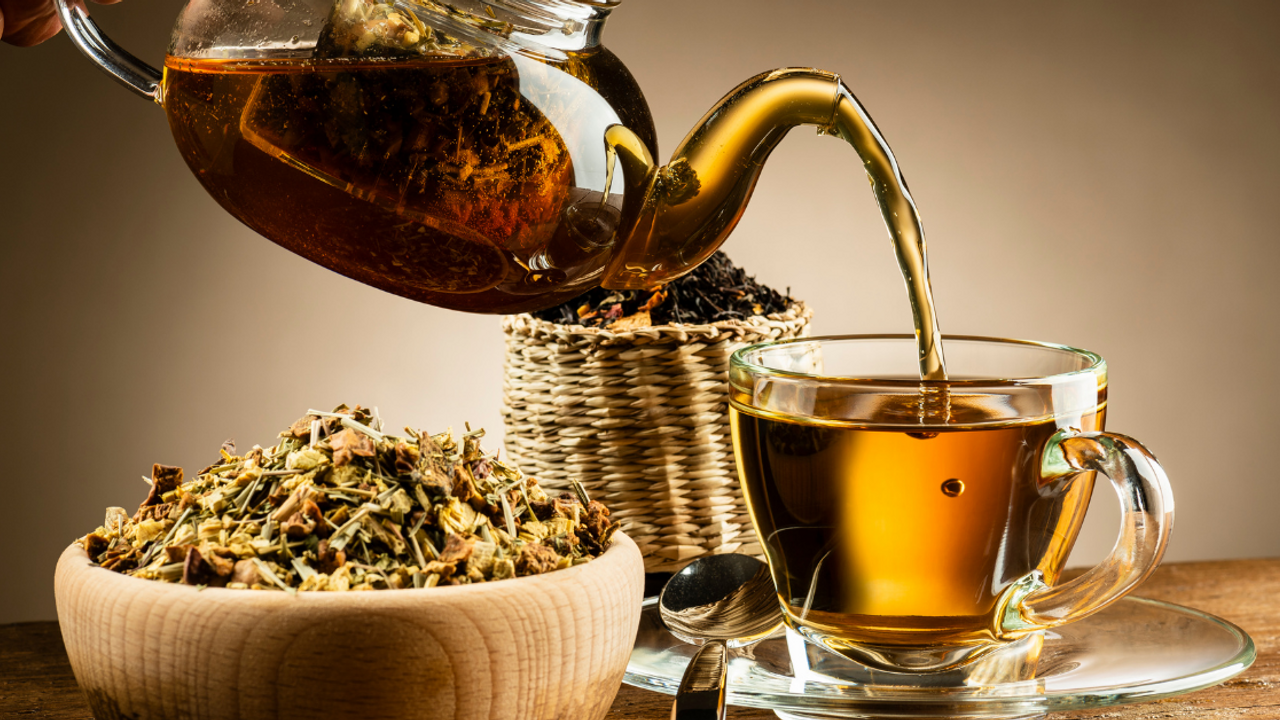Menopause Menu: To Tea Or Not To Tea?
Feb 22, 2020
To Tea or not to Tea in Menopause....that is the question
(and the answer is YES!)
I’m currently catching up on Netflix’ The Crown (yes, I know I’m late). All the tea drinking in the show has piqued my interest in the popularity of tea and if and how tea might be beneficial for menopausal women. I’m team coffee but, in the spirit of curiosity, I went searching for facts about tea. Cheers!
Tea is among the world’s oldest and most revered beverages. It is today’s most popular beverage, next to water. We hear about the purported health benefits of drinking tea, but what are those benefits, and how strong is the evidence?
Let’s start with the compounds thought to be responsible for tea’s beneficial health effects: catechins and epicatechins. These are found in tea and belong to a group of plant chemicals called flavonoids. There is evidence that flavonoids have anti-inflammatory and anti-oxidative properties, which is good for you because of the protective effect it may have against cellular damage that is related to diabetes, cancer, cardiovascular disease, and aging, just to name a few. Next up: phytoestrogens and herbal teas.
Phytoestrogens are plant-derived chemicals that exhibit weak estrogen-like effects and have received a lot of scientific attention because of the possible benefits it may have in treating menopausal symptoms. Although soy provides a better source of phytoestrogens, some herbal teas can also contain phytoestrogens.
In a recent study, women that took herbal tea capsules for at least 1 month showed improvements in the severity and duration of hot flashes.
My recommendation on tea consumption is a very strong YES!! The bottom line is that there appear to be limitless health-promoting benefits with very few negative side effects. In my opinion, the benefits far outweigh the risks. So, sit back, relax, and enjoy a few cups of tea.
Below, I have summarized the key points, to include all of the words you probably keep hearing about but maybe aren’t so sure what they actually mean ☺ such as catechins, polyphenols, phytoestrogens, and EGCG.
Key points:
- The three major forms of tea are: green (unfermented), black, (fully fermented), oolong (semi-fermented)
- Tea contains components with antioxidant activity: polyphenols, minerals, vitamins.
- Polyphenols are the major active compound in tea
- Epigallocatechin gallate (EGCG) is the most studied
- Catechins are the major polyphenolic compounds
- Are powerful antioxidants and have been shown to inhibit certain cancers, improve blood flow in the cardiovascular system and reduce LDL cholesterol oxidation.
- Possess antidiabetic, anti-inflammatory, antibacterial, and antiviral properties.
- Because green tea contains more catechins than black or oolong teas, the majority of studies have focused on the use of green tea
- Recent studies suggest tea may:
- Protect against certain types of cancer
- Help with weight- and fat loss through its thermogenic properties
- Contribute to the reduced risk of cardiovascular disease
- Increase bone mineral density, and it has been identified as an independent factor protecting against the risk of hip fractures
- Decrease cholesterol absorption and plasma levels
- Decrease systolic and diastolic blood pressures.
- Raise levels of serotonin and/or dopamine in the brain
- The positive effects found, suggest a daily intake of 4-5 cups of tea per day
- If you prefer drinking tea cold, make sure that the tea is first steeped for at least 3 minutes to harvest most of its antioxidant properties.
- Also, if you’re experiencing hot flashes, drinking cold tea might be a better choice
Negative side effects of caffeinated teas: (I was unable to find credible information indicating harmful effects of non-caffeinated teas):
- Some people that are very sensitive to caffeine will have trouble sleeping
- Green tea contains less caffeine than coffee: there are approximately 30-60 mg of caffeine in 6-8 oz ounces of tea, compared to over 100 m in 8 oz of coffee
- Studies on the effects of caffeine on menopause symptoms (especially VMS) continue to be inconsistent but if you’re suffering from hot flashes and you’re a regular caffeine drinker, try cutting down on caffeine or eliminating it completely to see if it makes a difference.
I’d love to get your feedback on this topic. Also, if you have questions about other topics but aren’t sure how to find the answer, let me know. I love researching and sharing.

References:
Kheirkhah, M., Naieri, S. D., & Tabari, N. S. (2018). The effect of herbal tea capsule on menopause hot flashes. Journal of family medicine and primary care, 7(5), 1074–1078.
Cabrera, C., Artacho, R., Giménez, R. (2006). Beneficial Effects of Green Tea – A Review. Journal of the American College of Nutrition, 25(2), 79-99.
Higdon JV, Frei B: Tea catechins and polyphenols: health effects, metabolism, and antioxidant functions. Crit Rev Food Sci Nutr 43:89–143, 2003
Khan, N., & Mukhtar, H. (2018). Tea Polyphenols in Promotion of Human Health. Nutrients, 11(1), 39.
Hayat, K., Iqbal, H., Malik, U., Bilal, U., Mushtag, S. (2015). Tea and its consumption: benefits and risks. Crit Rev Food Sci Nutr 55(7):939-54
Panche, A. N., Diwan, A. D., & Chandra, S. R. (2016). Flavonoids: an overview. Journal of nutritional science, 5, e47. doi:10.1017/jns.2016.41


